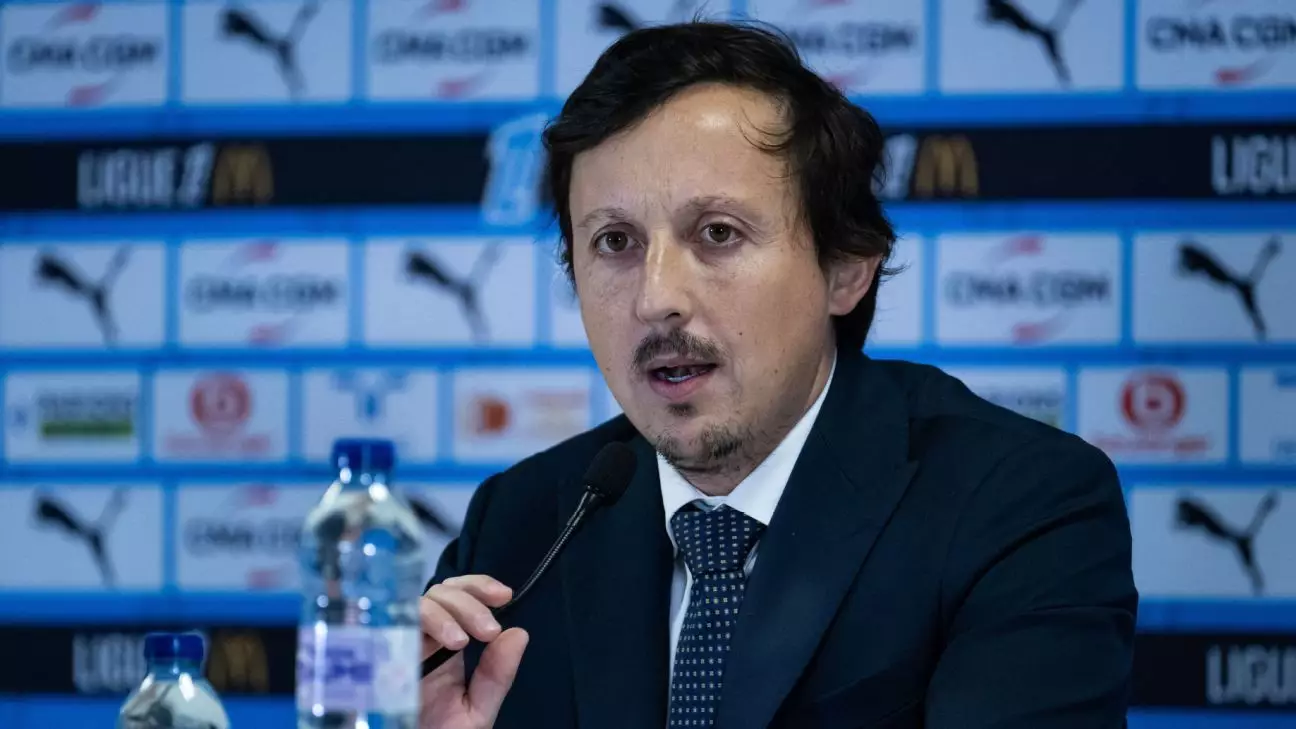The recent escalation of tensions in French football following the controversial remarks made by **Pablo Longoria**, president of **Olympique de Marseille**, raises several pertinent issues regarding the integrity of officiating in a sport that thrives on passionate fan engagement and competitive rivalries. Following the team’s disappointing **3-0 loss** to Auxerre, Longoria unleashed a torrent of accusations aimed at the referees, bringing to light a series of mounting frustrations that have been brewing under the surface throughout the season.
Marseille’s performance this season has been fraught with inconsistencies, evidenced by five league losses that have left them trailing significantly behind **Paris Saint-Germain (PSG)**. This mounting frustration has pushed Longoria to take a more aggressive stance toward refereeing decisions and what he describes as “true corruption” that allegedly plagues the league. His comments signify more than mere dissatisfaction; they suggest a deeper belief that Marseille is being systematically undermined by biased officiating.
The backdrop of Marseille’s struggles cannot be ignored. A club with a storied history and fanatical supporters, Marseille’s frustration is intensified by their long-standing rivalry with PSG, which has dominated the league in recent years. When the leadership of a prominent club publicly questions the integrity of referees, it inevitably sends shockwaves throughout the sport, complicating the already delicate relationship between officials and teams.
Longoria’s outburst raised eyebrows among football authorities, prompting a swift reaction from the **French Football Federation (FFF)**. Philippe Diallo, the FFF president, did not hesitate to condemn Longoria’s statements, asserting that they tarnish the reputation of refereeing within the league. Diallo’s defense of referee **Jérémy Stinat**, who was in charge of the now-infamous match, reflects a growing concern that uninterrupted accusations against referees can undermine their authority and lead to a culture of distrust within the sport.
Referee union **SAFE** has also voiced outrage, proposing legal repercussions for Longoria’s comments, labelling them as defamatory. This reaction is indicative of a broader issue—where criticism veers into personal attacks can have a chilling effect on the decision-making process of officials, potentially discouraging highly qualified individuals from officiating matches at high levels.
Accusations of conspiracies or malicious intent can be incredibly damaging not only to the perception of the referees but also to the integrity of the league itself. It raises critical questions: What happens to the trust that teams must have in officials? And how do fans react to claims that the game might be rigged?
Longoria’s assertions come at a time when the relationship between clubs and match officials is already strained. The ongoing narrative that referees are influenced by pressure from external timings—like prior controversies—gives rise to fears that decisions might be made through the lens of bias rather than fairness.
Furthermore, **Marseille’s coach, Roberto De Zerbi**, echoed Longoria’s sentiments by labeling the red card to player **Derek Cornelius** as “scandalous,” further magnifying the narrative of blame directed at officials. While it is not uncommon for coaches to express their displeasure with decisions, the scope of De Zerbi’s comments underscores the volatile atmosphere enveloping French football.
In light of these events, it is crucial for all parties involved to engage in constructive dialogue. Provocative remarks from club executives only serve to deepen rifts within the community. Football thrives on passion, but fostering open communication between clubs and referees may offer a pathway to resolve grievances without resorting to public allegations.
Both Marseille and the wider French football community must navigate these turbulent waters with caution. Maintaining the integrity of the sport relies heavily on mutual respect and understanding. If clubs, referees, and football authorities can work together to address concerns transparently, it might help restore some much-needed faith in the game’s officiating, ensuring the focus remains on the players’ performances rather than on the controversies stemming from the sidelines.

